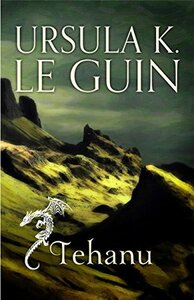Take a photo of a barcode or cover
adventurous
emotional
hopeful
inspiring
mysterious
reflective
slow-paced
Plot or Character Driven:
A mix
Strong character development:
Yes
Loveable characters:
Yes
Diverse cast of characters:
N/A
Flaws of characters a main focus:
No
dark
emotional
hopeful
medium-paced
Great book, really enjoyed it. Well written characters, a linear plot that still catches you by surprise. I'm really glad I read the first 3 books of the series to fully appreciate this one.
Minor: Child abuse, Domestic abuse, Rape
dark
emotional
reflective
slow-paced
Plot or Character Driven:
Character
Strong character development:
Yes
Loveable characters:
Yes
Diverse cast of characters:
Yes
Flaws of characters a main focus:
Yes
adventurous
emotional
medium-paced
dark
emotional
slow-paced
Plot or Character Driven:
Character
Strong character development:
Yes
Loveable characters:
Yes
Diverse cast of characters:
Yes
Flaws of characters a main focus:
Complicated
This book was so much darker than I expected, but that was my fault.
mysterious
reflective
sad
slow-paced
Plot or Character Driven:
Character
Strong character development:
Complicated
Loveable characters:
No
Diverse cast of characters:
Complicated
Flaws of characters a main focus:
Yes
Interesting discussions on gender roles and power dynamics. This was very boring till about 75% in. If it weren't so short I'd have quit without finishing it.
I wanted to love this book, I really did. In case you missed my reviews of the first three Earthsea books, which I re-read recently, I am besotted with them. They’re a bit dated in some ways, but still, a nearly perfectly written magical world, beautifully conceived and written.
I’d never read this one, though, and I’d actually been saving it up, I was looking forward to it so much. For the first half, I was enjoying it, but couldn’t figure out who the intended audience would be. It’s marketed as YA, and the first three books were definitely YA, but Tehanu is really a book about middle age. Tenar’s children have grown and left, her husband has died, and now she has to figure out what to do next, how she is going to be in the world. Ged surrendered his magical powers to heal the world in the previous book, and now he is an aging former wizard. What does that mean for him? It should have been the perfect book for me, because I am at the same phase of life.
But LeGuin wrote it as a woman born in 1929, and her understanding of gender and gender roles is not complex— at least not here (I know she does better in other books). The question of masculinity almost comes down to whether or not a man is willing to help with the dishes. That was a huge deal for her generation (my own mom included), but now it seems almost silly, and the way it was made into a major point felt clunky and ham-handed.
And then there is the question of being spelled into silence by men of power. Again, for LeGuin’s generation, that was the whole thing: men of power got to define who you could be, and whether or not you were allowed to even exist in the world of your social group. The curse laid on Tenar felt totally accurate for LeGuin, and even for parts of my own early upbringing, but it didn’t seem to me that she resolved that issue (to the extent it can be resolved) in a way that worked for 2020.
Moments that might have felt groundbreaking or fresh in 1990 seem like the teeniest first step thirty years later. She does end on a hopeful note with Therru’s future, but overall I have to say this novel just didn’t work for me. Disappointing.
I’d never read this one, though, and I’d actually been saving it up, I was looking forward to it so much. For the first half, I was enjoying it, but couldn’t figure out who the intended audience would be. It’s marketed as YA, and the first three books were definitely YA, but Tehanu is really a book about middle age. Tenar’s children have grown and left, her husband has died, and now she has to figure out what to do next, how she is going to be in the world. Ged surrendered his magical powers to heal the world in the previous book, and now he is an aging former wizard. What does that mean for him? It should have been the perfect book for me, because I am at the same phase of life.
But LeGuin wrote it as a woman born in 1929, and her understanding of gender and gender roles is not complex— at least not here (I know she does better in other books). The question of masculinity almost comes down to whether or not a man is willing to help with the dishes. That was a huge deal for her generation (my own mom included), but now it seems almost silly, and the way it was made into a major point felt clunky and ham-handed.
And then there is the question of being spelled into silence by men of power. Again, for LeGuin’s generation, that was the whole thing: men of power got to define who you could be, and whether or not you were allowed to even exist in the world of your social group. The curse laid on Tenar felt totally accurate for LeGuin, and even for parts of my own early upbringing, but it didn’t seem to me that she resolved that issue (to the extent it can be resolved) in a way that worked for 2020.
Moments that might have felt groundbreaking or fresh in 1990 seem like the teeniest first step thirty years later. She does end on a hopeful note with Therru’s future, but overall I have to say this novel just didn’t work for me. Disappointing.
adventurous
challenging
dark
emotional
hopeful
inspiring
reflective
medium-paced
Plot or Character Driven:
A mix
Strong character development:
Yes
Loveable characters:
Yes
Diverse cast of characters:
Yes
Flaws of characters a main focus:
Complicated
Ursula was playing 4D chess the entire series, and only now reveals the true game.
adventurous
dark
inspiring
medium-paced
Plot or Character Driven:
A mix
Strong character development:
Yes
Loveable characters:
Yes
Diverse cast of characters:
Yes
Flaws of characters a main focus:
Yes






